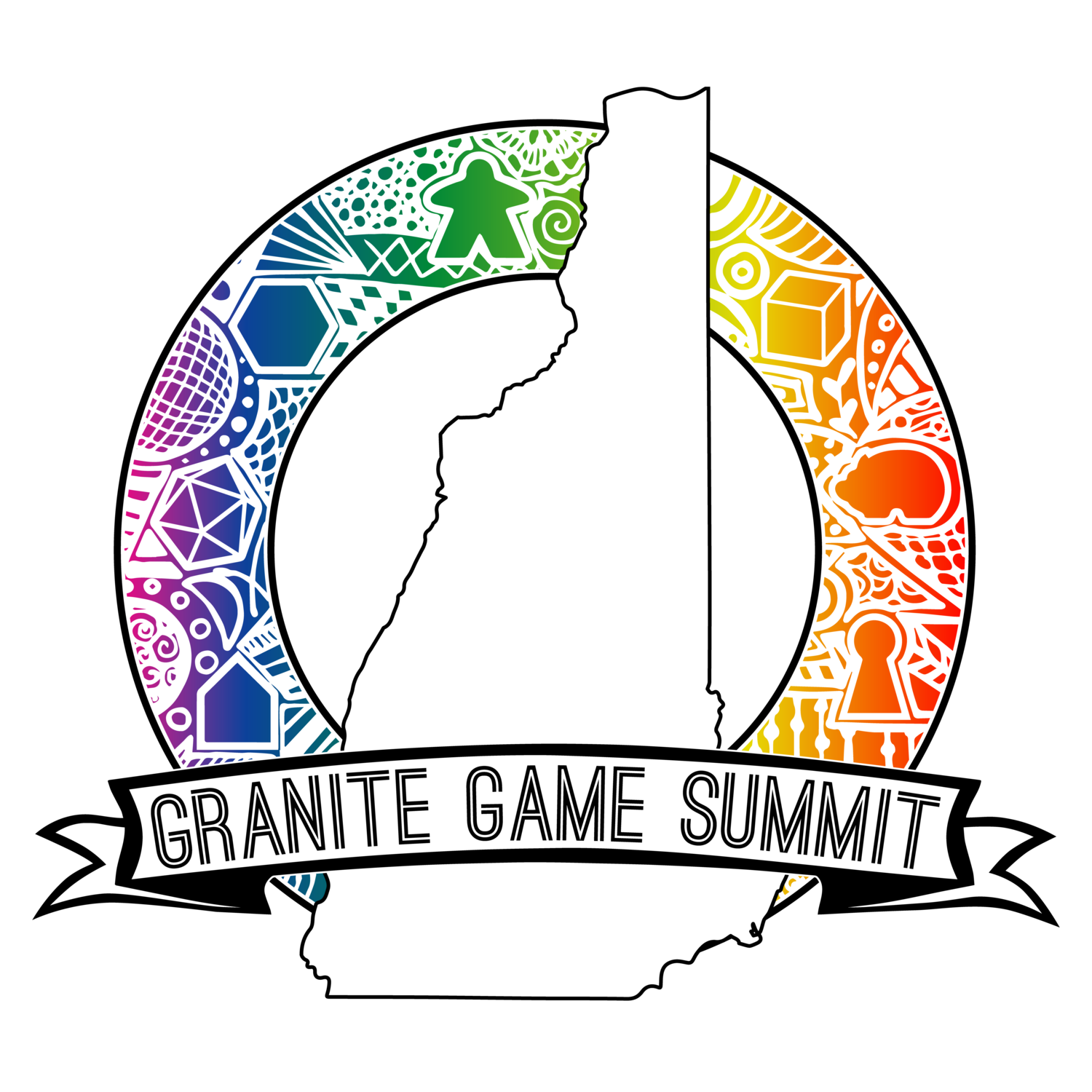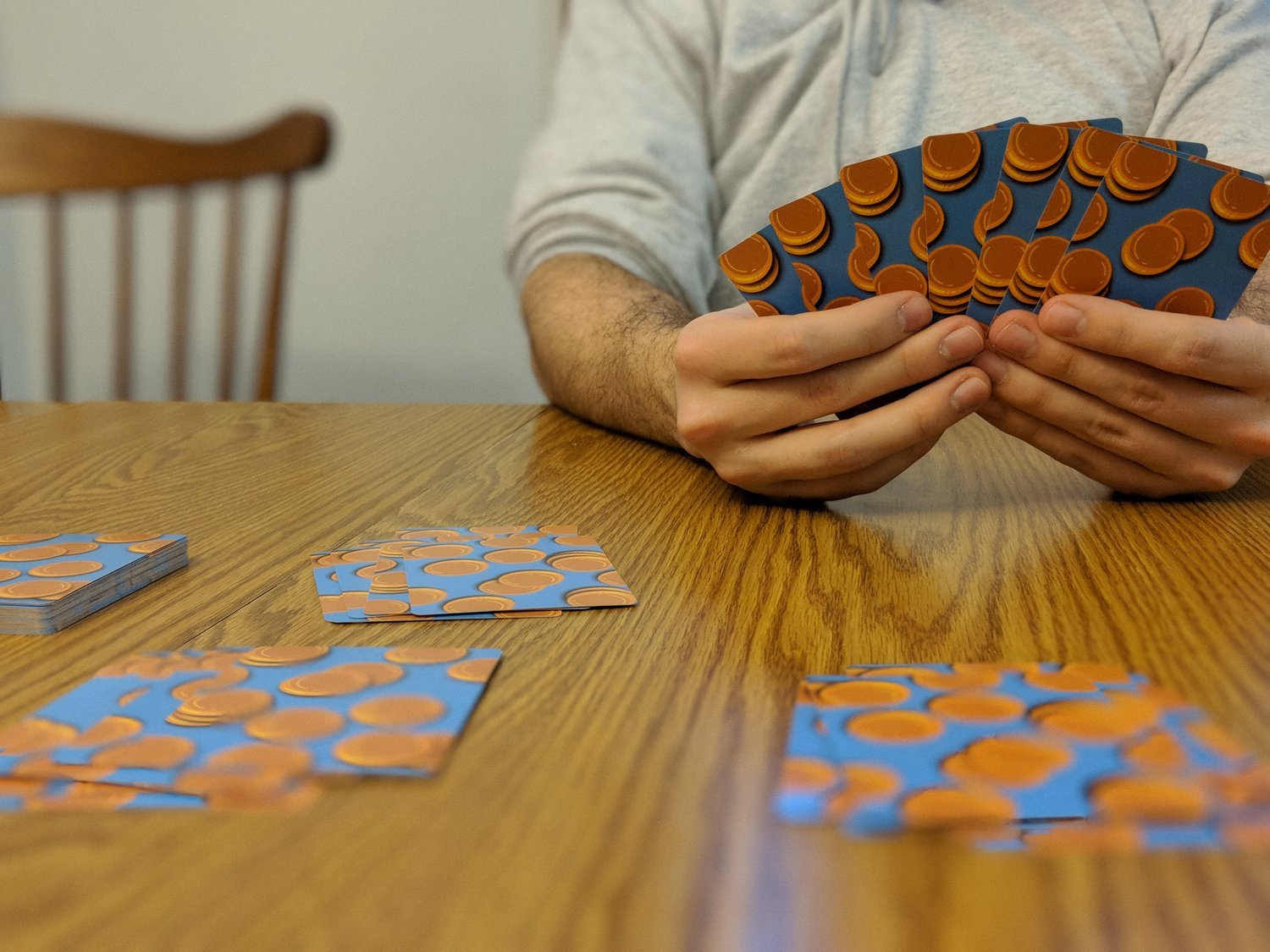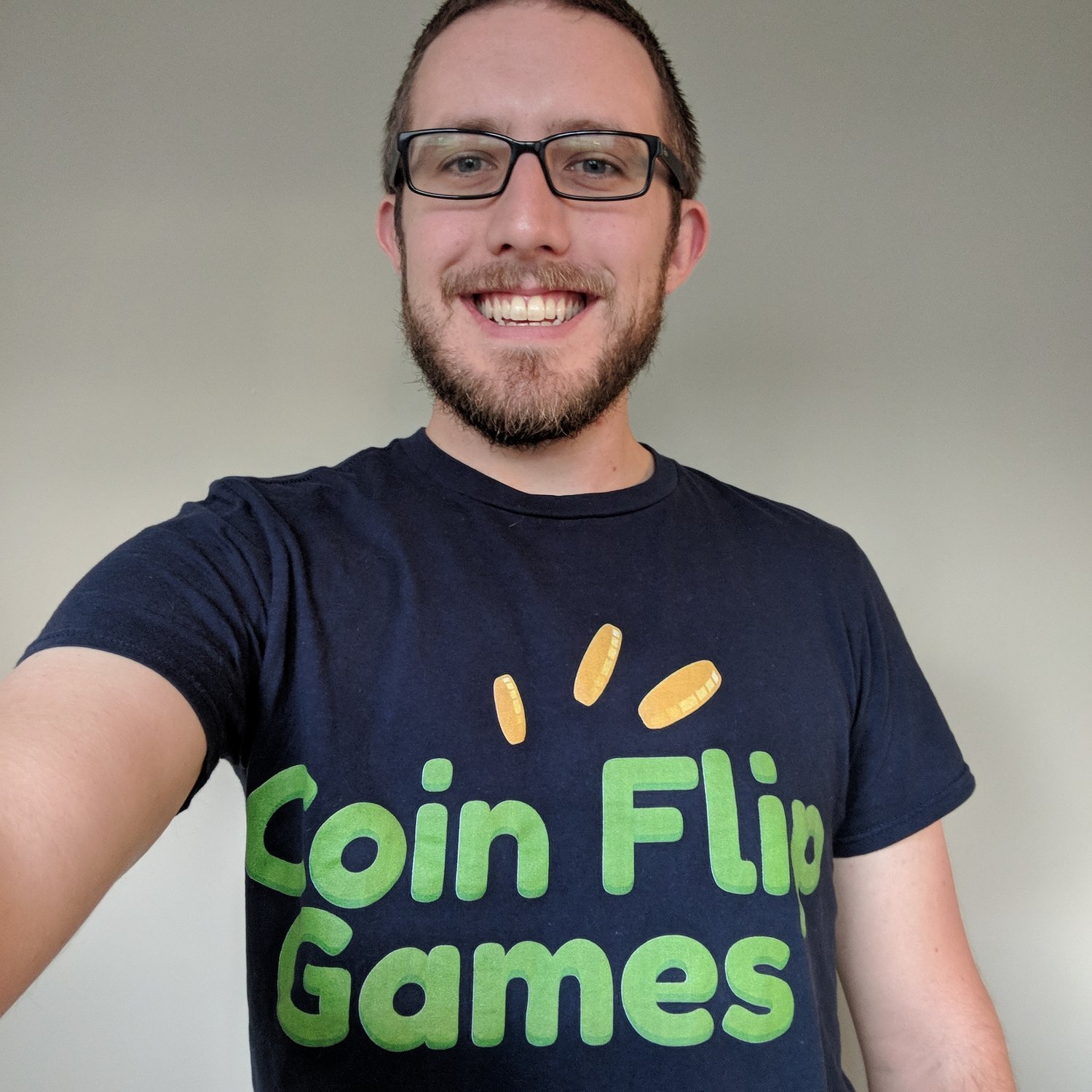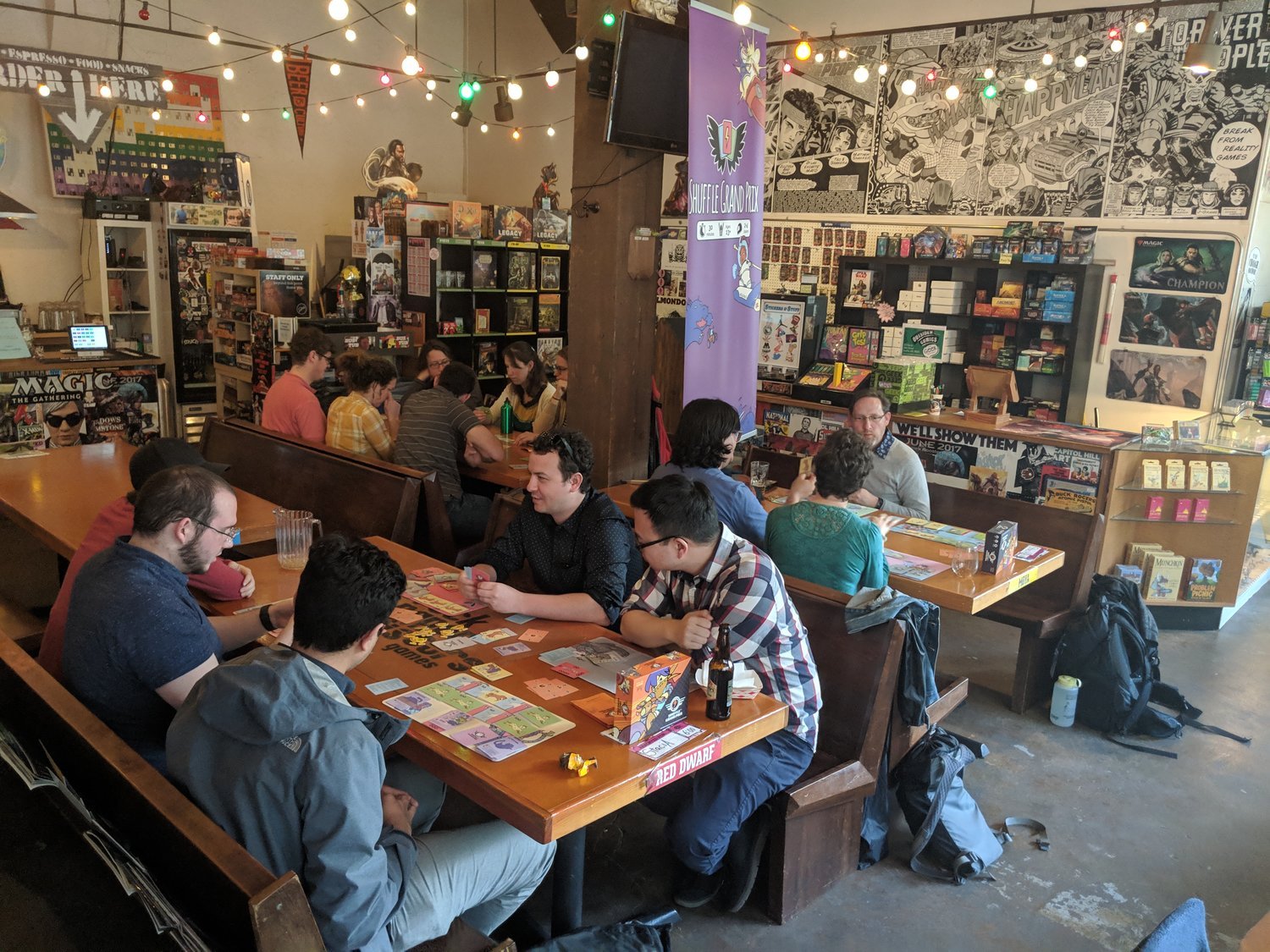Robert Newton
Today we are featuring Robert Newton, designer of Skeleton Keys, Get That Bread and more. He grew up in Colorado and spent a few years out in the center of Pennsylvania. Robert just recently moved to Seattle and has gotten involved in the designer community there. He is a Software engineering to pay the bills which allows him to participate in this hobby/side-gig. He is working remotely and tends to travel somewhat frequently so he has quite a bit of flexibility when designing. If he has a long flight, he can usually get a bunch of things done! Robert lives with his partner, Staci and their pets MC Cat Commander, Merlin (the parakeet) and Navarre (the crested gecko). He got into modern board gaming in the typical way with Catan and Ticket to Ride. What really sealed the deal was the excellent game group and the wide variety of tastes. They tried a variety of games like party, euros and ameri-style. You can meet Robert and see what games he is working on in Designer Alley.
THREE RANDOM FACTS ABOUT ROBERT:
He thinks he has a disc addiction. He loves disc golf, ultimate (frisbee), and dexterity games.
Robert is really into flags. The history and meaning can be really interesting. (New Mexico wins for best state flag, but I say that begrudgingly because Colorado's is good too).
He and his partner homebrew beer. They just recently started growing their own hops too. Hoptimus moved with them from Pennsylvania and hasn't let them down yet!
Questions by Kimberly Revia (KR), answers by Robert Newton (RN).
THREE BOARD GAME RELATED QUESTIONS:
KR: How long have you been designing games?
RN: I've been designing games for a long time. I learned the very, very basics of programming by making custom Starcraft maps as a kid. Simple things like if a player goes here, do this thing. I didn't do much with it until after I finished my undergrad and started a digital games company with a friend. We released a bunch of tiny games and had limited success. The community wasn't quite what we were hoping for as well. He went off to start a family (so selfish! ... I kid) and I took a bit of a hiatus as well. After I was introduced to modern board games, something just clicked. I had to make a racing game. So sometime in spring 2017 I started trying to make it come to life. The first 50 iterations were terrible, but I was learning the community, the tricks and the tips. Two years later, Shuffle Grand Prix was on the shelves!
KR: Have you experienced any hurdles that were unexpected during the design process?
RN: I wasn't expecting pitching to be so difficult! In the same vein, teaching your game to playtesters is always difficult at the beginning of the design when things are still a bit fuzzy. Over time, I've learned how to handle this kind of stuff better. It's definitely a skill!
KR: How does a design generally start for you? (ie: mechanic, theme, end game objective)
RN: I've had a lot of different starts, actually. I've played a game that I really disliked and tried to remake it the way I wanted. I've mashed up two mechanics in an unexpected way. I've started with a name and worked my way out from there into a game. I've started with a theme I liked and built a game around it. Inspiration has really come from just about everywhere, but almost always strikes in the shower.
THREE QUESTIONS JUST FOR FUN:
KR: If you could travel to any point in time, what would you choose?
RN: That depends on a lot of factors, I think. If we can ignore the problematic pathogen exchange (another game?) and any paradoxes... I'd have to figure out what my goal was. If it was just to observe and see how things went down, I think I'd go prehistory. I would want to see what the Mediterranean basin looked like before the Atlantic flooded in as the ice caps were melting. Who lived there? What were they like? Just a fascinating thing to think about our ancestors before we started recording history.
KR: What does your ideal game night entail?
RN: It's the company that makes the game night special. I'm happy to play a game in just about any genre and any player count as long as it's a good group of people.
KR: What do you enjoy about conventions?
RN: On a personal level, I really love seeing all the long distance friends that I've made in the short time that I've been a part of the tabletop design community. Everyone is super welcoming and helpful and I love seeing what everyone is working on. On a professional level, I make so much progress whenever I go to a convention. I get a bunch of data and feedback on designs, I get my game in front of publishers, and I get a bunch of ideas. It's really easy to test out your games in a bubble and conventions are the perfect way to break out of that bubble. That thing you've been stuck on and agonizing over for months? Solved in ten minutes at a convention!
If you would like to know more about Robert and what he is currently working on, click the links below!
https://playtest-coop.com Robert is working on a platform for designers to showcase their games in-progress and provide print-and-plays and gather feedback. The site is in beta now, but it's ready to use while he is adding more and more features.
Twitter: CoinFlipGames
Facebook: CoinFlipGames
Instagram: CoinFlipGamesLLC
Website: Coinflipgames.co




